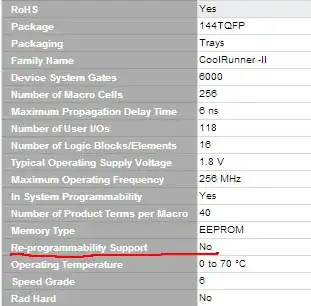Given that microcontrollers can be reprogrammed multiple times, does this apply to CPLDs as well? In particular, I am interested in Xilinx's CoolRunner-II. Until now, I was positive about the re-programability, but after looking at the specs at one of the stores, I got confused:

So, does it mean that I can program it only once?